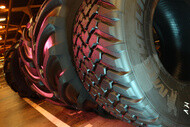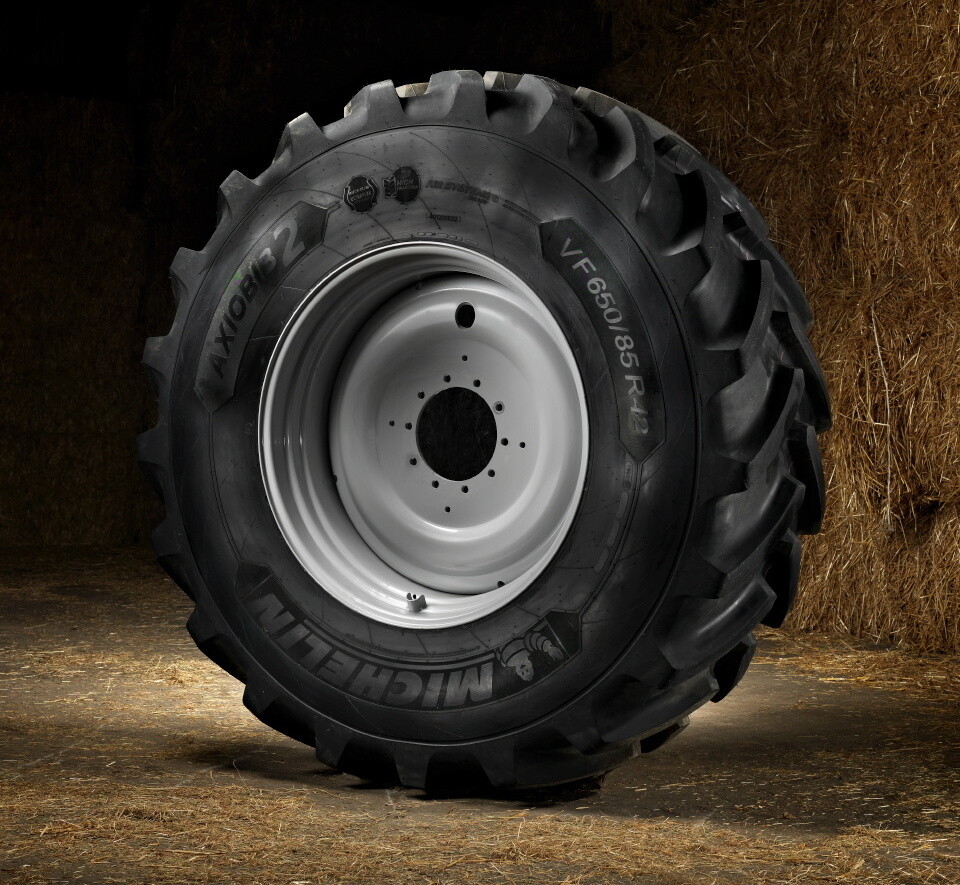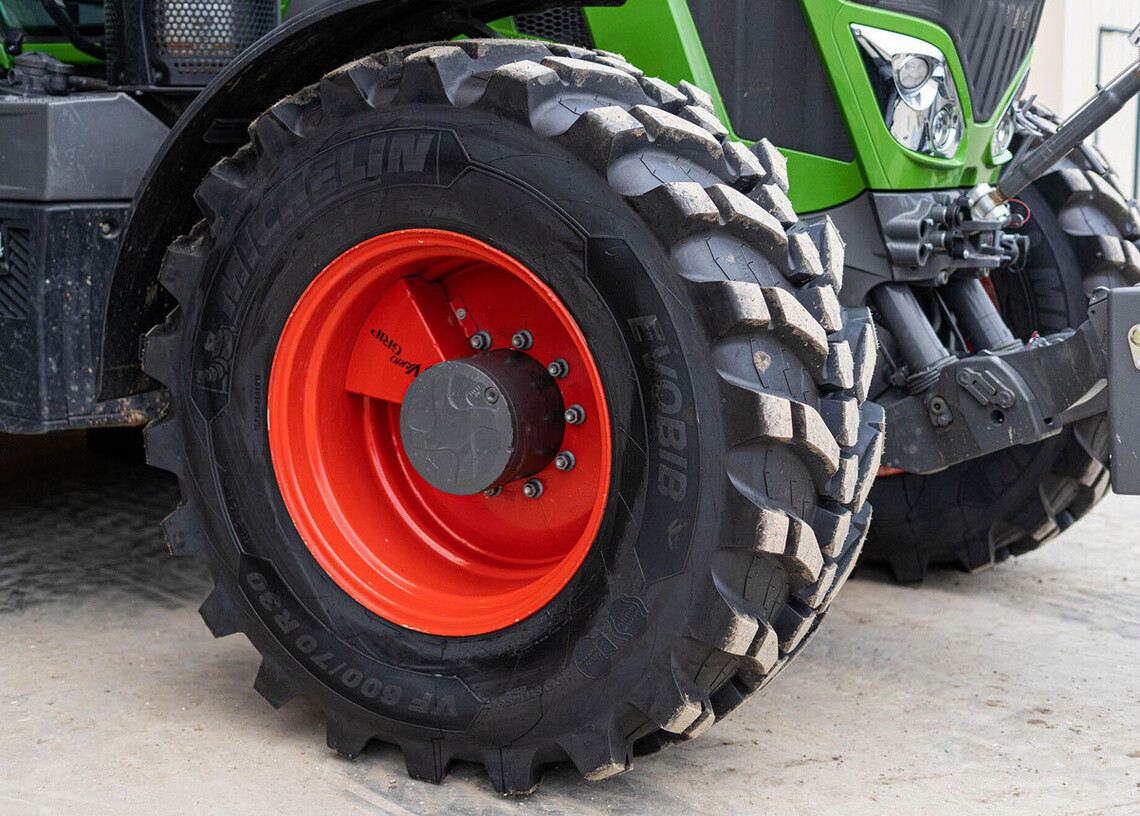
Tractor tyre replacement: when to change
Tire replacement: when is the right time to change my tractor tires?
When carried out wisely, selecting the right tire can maximize your tractor's performance in every use, improving your productivity. But when should you change tires? How can you optimize their performance? Are there any pitfalls?
Read on to find the answers to these questions.
Tire replacement based on tractor use
As you probably know, one of the most common reasons for tire replacement on your tractor is to meet the needs of your activity. For example, wider tires are often more appropriate for top work or when the ground is soft. Conversely, narrow tires make it easier to pass through standing crops in your field.
And as this can happen several times a year, instead of carrying out a tire replacement, it's simpler and easier to replace the wheels as a whole (tire + rim). This, of course, implies having a second set of wheels available.
How to choose the second set of wheels
If you want to easily manage a tire replacement with two sets of wheels of different widths, it is important to ensure that the diameters and rolling circumference of the tires is compatible with the tractor's mechanical ratio.
As the front wheels have a smaller diameter than the rear wheels, they do not rotate at the same speed. The mechanical ratio is the ratio between the speed of rotation of the front wheels and that of the rear wheels. For example, an mechanical ratio of 1.5 means that the front wheels turn 1.5 times faster than the rear wheels.
The mechanical ratio will be advised by your vehicle manufacturer. With this information your tire dealer will be able to advise you of the correct tire options while respecting the mechanical ratio of the vehicle. Whether you want to widen the tire for greater load capacity or to be able to lower the pressure to protect the ground.

axiobib2 at work
pneu MICHELIN AXIOBIB2
How to store unused wheels
When a set of wheels is not in use, store it in a clean, dry place away from direct sunlight. This will prevent premature ageing of the rubber and keep your tires performing for longer.
Can different tires be fitted to the same tractor?
As we've just explained, it's possible to fit different tires to suit the needs of your field. But not everything is possible, as we'll explain below.
Can I fit different tires at the front and rear?
It is technically possible, on a tractor, to fit two different ranges of tires at the front and rear although this should only be done in response to specific needs, ensuring that front wheel lead is taken into account. Remember, however, that the ranges are designed for specific tractor powers and uses.
Can I fit different tires on the same axle?
It is strongly recommended that you have the same size, the same load and speed index, the same brand of tire and the same range on the same axle. It is also preferable to have the same level of wear on the two tires of the same axle to avoid premature wear. This means that tire replacement on the same axle should be done in pairs.

Identical tyre on a same axle
Tire replacement due to wear
Wear is indeed an important signal for tire replacement. And there are no wear indicators on tractor tires as there are on passenger car tires. Nevertheless, tire wear is something to keep an eye on, as worn out tires can compromise traction, increase wheel slip and therefore increase fuel consumption, which of course has an impact on your costs.
When you notice that your tractor is having more difficulty in muddy and slippery conditions, this could mean that the tires are worn out. Don't delay in consulting your tire dealer about tire replacement.
The right pressure to optimize performance
How do I know the right air pressure for my tires?
Correct tire pressure is essential to maximize traction, avoid premature wear and extend the life of your tires. To make sure you always have the right pressure, we recommend checking it regularly with a reliable gauge and adjusting it if necessary according to load and speed.
If you don't know the recommended pressure for your tires according to load and speed, you can consult our online tool "MICHELIN AGROPRESSURE" and let yourself be guided. In just a few seconds, our tool will help you find the right tire pressure for any configuration of tractor and equipment even if you don't know the axle load.
When should you check your tractor tire pressure?
When replacing wheels...
Have you decided to replace your wheelset with narrower or wider wheels? This is a good time to check your tire pressure.
The set of wheels you had in storage may have lost air since they were last used. Remember that under-inflated tires will under perform and consume more fuel. Having the correct tire pressure will save you money.
When your load changes...
To ensure the best possible performance from your tires, their pressure needs to be adjusted according to the load and speed requirements of your application. If, for example, the tractor is carrying a plough on the road, this represents a heavy load that requires a higher tire pressure. But once the plough has been put into work in the field, the load and speed are reduced, which means that your pressure has become too high.
If this is difficult to achieve, always set your tire pressure based on the load and speed of the activity that’s most demanding of your tire and set the corresponding maximum pressure.
Tire replacement: which tires should you choose?
Choosing the right type of tractor tires is crucial to optimizing your agricultural operations. Different terrains, soil conditions and tasks require specific tire characteristics to ensure optimum traction, stability and longevity.
To help you make the right choice, browse our tire selector:
Need more advice? Discover our tire choosing guide.




